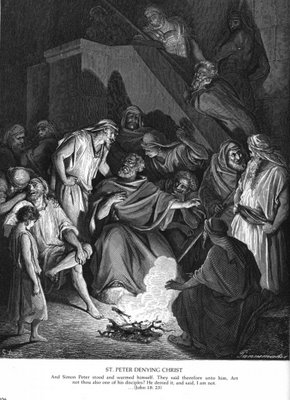Continuing our discussion of the correspondences between Heraclitus and the Zarathustras, we have the directive that each one find truth for oneself; that one must never follow. As the old Buddhist epigram goes, “if you meet the Buddha on the road, Kill him.” Heraclitus, likewise, bids his readers not to listen to him, but rather to the Logos. Heraclitus also says “eyes are better witnesses than ears.”

Nietzsche’s Zarathustra, likewise, is intent upon shaking off his disciples, for their own good:
Verily, I counsel you: go away from me and guard yourselves against Zarathustra! And better still: be ashamed of him! Perhaps he has deceived you. … One repays a teacher poorly if one always remains only a student.
— Thus Spoke Zarathustra 1.22.3: On Bestowing Virtue
Zarathustra continues, cautioning his disciples against idolizing him:
You revere me; but what if your reverence should someday collapse? Be careful lest a statue fall and kill you!
— Thus Spoke Zarathustra 1.22.3: On Bestowing Virtue
As Heraclitus says, “I went in search of myself”, so Zarathustra instructs his disciples to do the same:
Now I bid you lose me and find yourselves; and only when you have all denied me will I return to you.
— Thus Spoke Zarathustra 1.22.3: On Bestowing Virtue
This sounds curiously similar to the story of Peter’s denial of Jesus:
Peter said unto him, Lord, why cannot I follow thee now? I will lay down my life for thy sake. Jesus answered him, Wilt thou lay down thy life for my sake? Verily, verily, I say unto thee, The cock shall not crow, till thou hast denied me thrice.
— John 13:37–38
In a sense, I can personally claim to have been similarly instructed by the Idol of my youth, Bahá’u’lláh, who chased me off with his manifold contradictions while he subtly—perhaps unintentionally—instructed me in the ways of divine Godlessness.
Unfortunately, I know of no doctrine of virtuous denial in Bahá’u’lláh’s writings.
Be thou of the people of hell-fire, but be not a hypocrite.
Be thou an unbeliever, but be not a plotter.
Make thy home in taverns, but tread not the path of the mischief-maker.
Fear thou God, but not the priest.
Give to the executioner thy head, but not thy heart.
Let thine abode be under the stone, but seek not the shelter of the cleric.
Thus doth the Holy Reed intone its melodies, and the Nightingale of Paradise warble its song, so that He may infuse life eternal into the mortal frames of men, impart to the temples of dust the essence of the Holy Spirit and the heavenly Light, and draw the transient world, through the potency of a single word, unto the Everlasting Kingdom.
(Baha’u’llah: Trustworthiness compilation, Page: 337)
Now that’s a new one to me, Steve. Thanks.
To think one can quote Baha’u’llah thus: “Be an unbeliever, …” Very good. May I apply a little license to the first two lines and combine them thus?: “Be a damned infidel!”
How could I have overlooked this old gem?:
“Anyone who speaks a word against the Son of Man will be forgiven, but anyone who speaks against the Holy Spirit will not be forgiven, either in this age or in the age to come.” Matthew 12:32 (NIV)